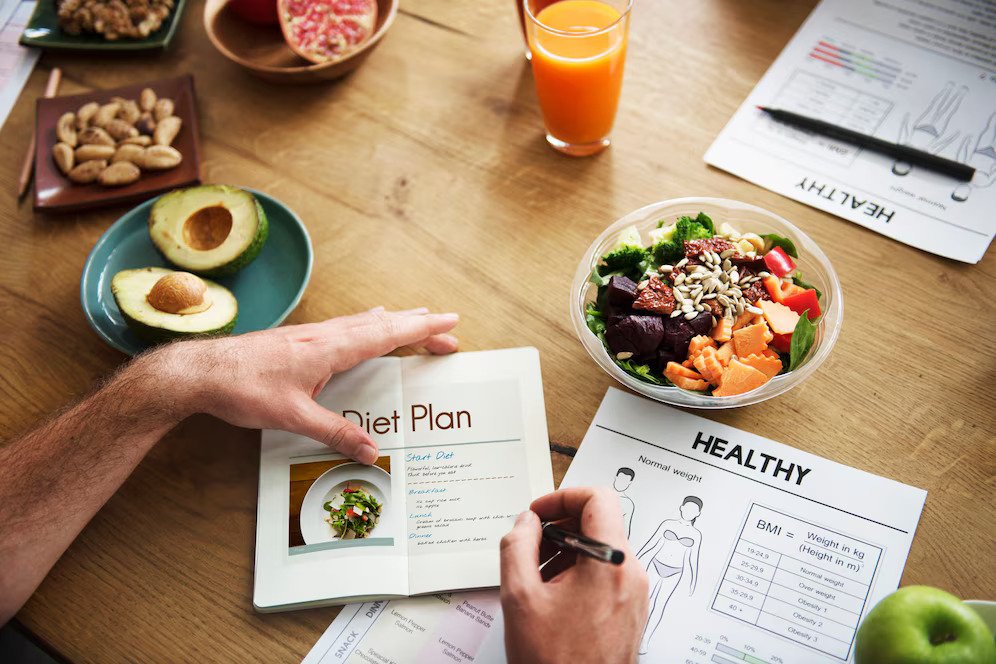Staying hydrated is crucial for maintaining good health. Dehydration can lead to various health problems. Therefore, it’s essential to understand how to keep your body well-hydrated. Here, we will discuss tips from the best dietician in Dubai to help you stay hydrated throughout the day.
Understanding Hydration
The process of keeping your body’s fluid levels appropriate is known as hydration. Water is essential for many biological processes. It aids in temperature regulation, nutrient absorption, and digestion. A dietitian can offer insightful information about the significance of staying hydrated.
The Role of a Dietician
A nutritionist can help you determine how much water your body needs. They evaluate your food habits, daily activities, and medical issues. Based on this evaluation, they provide customized hydration plans. This keeps you hydrated and in good health.
Daily Water Intake
Each person needs a different amount of water. Adults should generally strive to drink eight 8-ounce glasses of water every day. But depending on things like the weather, how active you are, and your health, this could alter. Your dietist can assist you in figuring out how much is suitable for you.
Drinking Water Regularly
Regularly drinking water is one of the easiest methods to keep hydrated. Water should be consumed in tiny amounts throughout the day, according to a nutritionist. Using this method is more efficient than ingesting a lot at once. It continuously hydrates your body.
Hydrating Foods
There are other sources of hydration than water. A lot of foods contain a lot of water. Cucumbers, oranges, and watermelons are great examples of fruits and vegetables. You can include these hydrating items in your diet with the assistance of a dietitian.
Benefits of Hydrating Foods
Foods high in water content not only aid in hydration but also supply vital nutrients. They include a lot of antioxidants, vitamins, and minerals. A dietitian can advise you on the finest options and go over the advantages of these foods.
Monitoring Your Hydration Status
Regularly checking your level of hydration is crucial. You can learn easy techniques from a dietitian to determine if you’re getting enough water. Urine color, for instance, is a reliable sign. Usually, light yellow urine indicates adequate hydration.
Signs of Dehydration
There are several ways that dehydration may appear. Weariness, black urine, and dry mouth are typical symptoms. A dietitian can assist you in identifying these symptoms early on. This enables you to act appropriately before severe dehydration sets in.
Hydration and Physical Activity
The amount of water your body needs rises while you exercise. Sweating causes fluid loss during activity. You can receive advice on how to stay hydrated before, during, and after physical activity from a dietician. They might advise consuming water before, during, and following physical activity.
Sports Drinks and Electrolytes
Sometimes, especially after vigorous exercise, ordinary water may not be sufficient. Sports drinks help restore electrolytes that are lost through perspiration. You can get advice from a nutritionist on when and how to utilize these drinks efficiently.
Hydration in Different Climates
Climate has an impact on your requirement for water. Sweating increases fluid loss in hot and muggy temperatures. You can modify your hydration tactics according to the weather with the assistance of a nutritionist. This guarantees that wherever you go, you will always be hydrated.
Cold Weather Hydration
Cold weather also makes it crucial to stay hydrated. Your body still requires water even if you don’t feel as thirsty. A dietitian can offer advice on how to stay hydrated in the winter. They could advise consuming soups or warm liquids.
Creating Hydration Habits
The secret to staying hydrated is to adopt healthy drinking habits. You can develop these behaviors with the aid of a dietitian. They could advise keeping a water bottle on hand or setting reminders to sip water. These minor adjustments can have a significant impact.
Hydration for Children and Elderly
The water demands are different in children and the elderly. Specialized advice for these age groups can be provided by a dietitian. For kids, they could recommend flavoring water to make staying hydrated enjoyable. They could suggest hydrating foods that are simple to consume for the elderly.
Hydration and Health Conditions
Your demands for hydration may be impacted by certain medical disorders. Sensitive hydration control is necessary for conditions such as diabetes or kidney issues. For specific guidance on controlling hydration under these circumstances, consult a dietitian.
Medications and Hydration
Certain drugs may cause dehydration. For example, diuretics enhance the production of urine. If you take any of these medications, a dietitian can advise you on how to stay hydrated. This guarantees you don’t become dehydrated even when taking medication.
Hydration Myths There are a lot of untruths about staying hydrated. Take the notion that a person requires precisely eight glasses of water every day. A dietitian may dispel these misconceptions and offer guidance based on solid data. This aids in your decision-making regarding hydration.



Этот информативный текст отличается привлекательным содержанием и актуальными данными. Мы предлагаем читателям взглянуть на привычные вещи под новым углом, предоставляя интересный и доступный материал. Получите удовольствие от чтения и расширьте кругозор!
Получить больше информации – https://medalkoblog.ru/